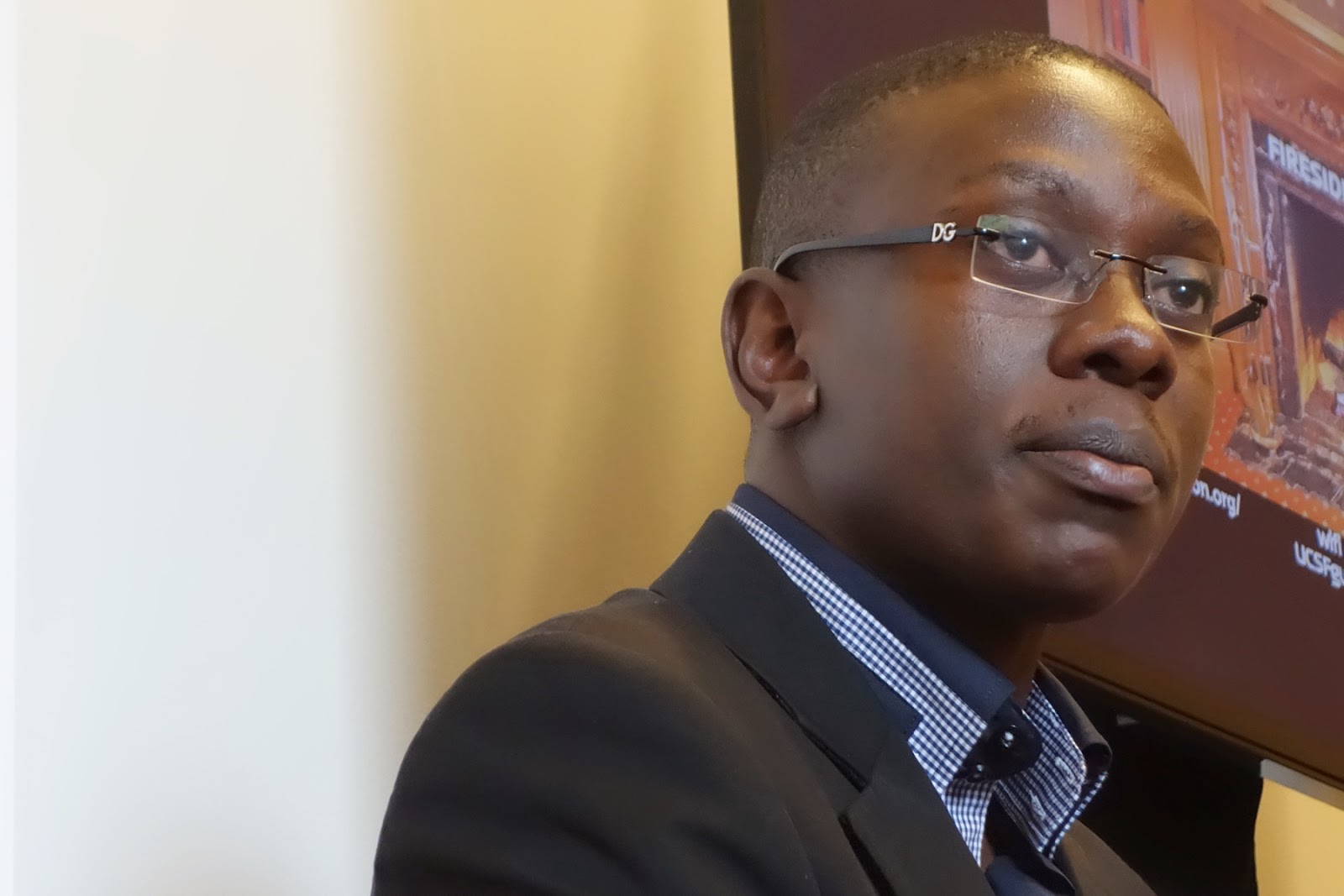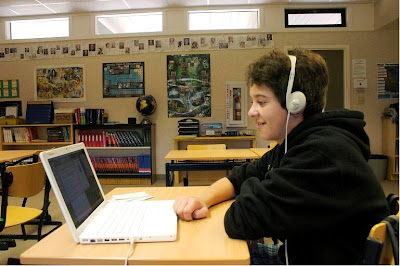Access and Washington
Benetech's mission is to create technology that serves humanity and our longest-running commitment is to people with disabilities. We have been helping blind and print disabled people gain access to books for over 17 years. The ability to read printed material is essential to advancing educational and employment opportunities for this community.
Two recent experiences underscored different parts of this struggle to deliver access.
The first started with an email from someone using one of the Arkenstone reading machines, which was over ten years old. These machines scanned books and read them aloud with a computer voice. There was a PC hidden inside our reading machines and the PCÂ’s clock battery finally ran out. So, the reading machine stopped working because it was halting before its voice synthesizer started asking for the current date. I consulted with Lewis (our testing expert and former tech support for these machines) and together with the customer, we were able get the reading machine working again. As the customer, David, noted: maybe it will keep working for another ten years! I sure hope so. It's great to see someone still using one of our products to access books for this length of time.
The second challenge we encountered took place in Washington D.C. at a Department of Education meeting on the new digital textbook repository, the NIMAC. The goal of this repository is to ensure that students with print disabilities have easy access to textbooks. Many regulatory processes depend on consensus committees. If you can get all of the competing interests to agree on a set of compromises, you create a safe zone for the agencies to regulate based on that consensus. I've seen this work well and I've seen it work poorly.
Regulatory efforts fail when one or more parties abuse this consensus process. Once, in the 1990s, our final meeting of a federal advisory committee changed when the corporate reps we had been working with for over a year were replaced by lawyers for the telecom companies. These companies were happy to take all of the concessions offered by the disability activist groups and wanted to remove all of the compromises made by the corporates.
I was reminded of that moment this earlier this month. We were close to next month's launch of the NIMAC, this new national textbook repository, a process which has taken two years since the passage of the updated Individuals with Disabilities Education Act by Congress in November 2004. The goal of this on-line library is to stop the scanning of textbooks for K-12 education - a job which is now done by parents, teachers and students. We had consensus from all of the stakeholders (including the publishing industry) permitting Recording for the Blind & Dyslexic, American Printing House for the Blind and our Bookshare.org to have direct access to the NIMAC library. This agreement would allow our Bookshare.org volunteers to do what they do best: turn these electronic files into accessible books for students with print disabilities.
At what we all believe is the last meeting for this project, a lawyer for the largest educational publishing house in the U.S. shows up for the first time in the two year process and goes on the attack. Threatening lawsuits, she made false assertions about the nonprofits in the consortium, sowing fear, uncertainty and doubt. Whatever it took to slow things this project down. Certainly we no longer had consensus, except of course on the issues where the disability advocates had already compromised.
If this attorney and her company has their way, there will be a lot of people who will still be scanning textbooks instead of accessing them through this new wonderful digital library. Apparently this serves the interests of this corporation, which believes that making books accessible threatens their financial interests.
Usually when I'm in Washington, I get to work with people who share an interest in making the world better, no matter where they work or for whom. Perhaps it's because I work in the fields of disability, literacy and human rights. But, occasionally I'm reminded that the other Washington exists.
I'm not an expert in the tactics employed by that other Washington (and hope I never become one!), but I do hope to work with other people of good will to make sure that we do the right thing for the students with disabilities. We will be working with our peers in the disability movement to calmly advocate for reasonable access and avoid raising needless barriers to the education of students with disabilities. They face barriers enough without adding more!
Two recent experiences underscored different parts of this struggle to deliver access.
The first started with an email from someone using one of the Arkenstone reading machines, which was over ten years old. These machines scanned books and read them aloud with a computer voice. There was a PC hidden inside our reading machines and the PCÂ’s clock battery finally ran out. So, the reading machine stopped working because it was halting before its voice synthesizer started asking for the current date. I consulted with Lewis (our testing expert and former tech support for these machines) and together with the customer, we were able get the reading machine working again. As the customer, David, noted: maybe it will keep working for another ten years! I sure hope so. It's great to see someone still using one of our products to access books for this length of time.
The second challenge we encountered took place in Washington D.C. at a Department of Education meeting on the new digital textbook repository, the NIMAC. The goal of this repository is to ensure that students with print disabilities have easy access to textbooks. Many regulatory processes depend on consensus committees. If you can get all of the competing interests to agree on a set of compromises, you create a safe zone for the agencies to regulate based on that consensus. I've seen this work well and I've seen it work poorly.
Regulatory efforts fail when one or more parties abuse this consensus process. Once, in the 1990s, our final meeting of a federal advisory committee changed when the corporate reps we had been working with for over a year were replaced by lawyers for the telecom companies. These companies were happy to take all of the concessions offered by the disability activist groups and wanted to remove all of the compromises made by the corporates.
I was reminded of that moment this earlier this month. We were close to next month's launch of the NIMAC, this new national textbook repository, a process which has taken two years since the passage of the updated Individuals with Disabilities Education Act by Congress in November 2004. The goal of this on-line library is to stop the scanning of textbooks for K-12 education - a job which is now done by parents, teachers and students. We had consensus from all of the stakeholders (including the publishing industry) permitting Recording for the Blind & Dyslexic, American Printing House for the Blind and our Bookshare.org to have direct access to the NIMAC library. This agreement would allow our Bookshare.org volunteers to do what they do best: turn these electronic files into accessible books for students with print disabilities.
At what we all believe is the last meeting for this project, a lawyer for the largest educational publishing house in the U.S. shows up for the first time in the two year process and goes on the attack. Threatening lawsuits, she made false assertions about the nonprofits in the consortium, sowing fear, uncertainty and doubt. Whatever it took to slow things this project down. Certainly we no longer had consensus, except of course on the issues where the disability advocates had already compromised.
If this attorney and her company has their way, there will be a lot of people who will still be scanning textbooks instead of accessing them through this new wonderful digital library. Apparently this serves the interests of this corporation, which believes that making books accessible threatens their financial interests.
Usually when I'm in Washington, I get to work with people who share an interest in making the world better, no matter where they work or for whom. Perhaps it's because I work in the fields of disability, literacy and human rights. But, occasionally I'm reminded that the other Washington exists.
I'm not an expert in the tactics employed by that other Washington (and hope I never become one!), but I do hope to work with other people of good will to make sure that we do the right thing for the students with disabilities. We will be working with our peers in the disability movement to calmly advocate for reasonable access and avoid raising needless barriers to the education of students with disabilities. They face barriers enough without adding more!



Comments